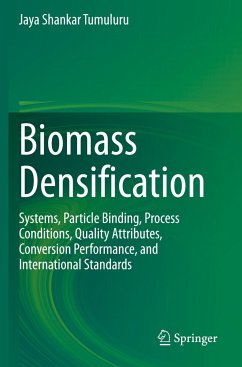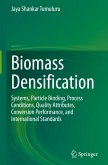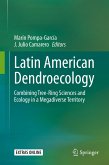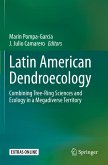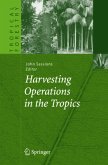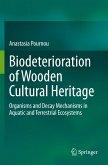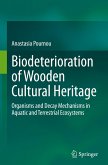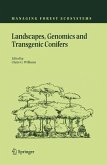This monograph discusses the various biomass feedstocks currently available for biofuels production, and mechanical preprocessing technologies to reduce the feedstock variability for biofuels applications.
Variability in the properties of biomass-in terms of moisture, particle size distribution, and low-density-results in storage, transportation, handling, and feeding issues. Currently, biorefineries face serious particle bridging issues, uneven discharge, jamming of equipment, and transportation problems. These issues must be solved in order for smooth operations to be possible. Mechanical preprocessing technologies, such as size reduction, densification, and moisture management using drying and dewatering, can help to overcome these issues. Many densification systems exist that will assist in converting low-density biomass to a high-density commodity type feedstock.
In 6 chapters, the impact of densification process variables, such as temperature, pressure, moisture, etc., on biomass particle agglomeration, the quality of the densified products, and the overall energy consumption of the process are discussed, as are the various compression models for powders that can be used for biomass particles agglomeration behavior and optimization of the densification process using statistical and evolutionary methods. The suitability of these densified products for biochemical and thermochemical conversion pathways is also discussed, as well as the various international standards (CEN and ISO) they must adhere to.
The author has worked on biomass preprocessing at Idaho National Laboratory for the last ten years. He is the principal investigator for the U.S. Department of Energy Bioenergy Technologies Office-funded "Biomass Size Reduction and Densification" project. He has developed preprocessing technologies to reduce cost and improve quality. The author has published many papers and books focused on biomass preprocessing and pretreatments.
Biomass process engineers and biorefinery managers can benefit from this book. Students in chemical, mechanical, biological, and environmental engineering can also use the book to understand preprocessing technologies, which greatly assist in improving the biomass critical material attributes. The book can help policymakers and energy systems planners to understand the biomass properties limitations and technologies to overcome the same.
Variability in the properties of biomass-in terms of moisture, particle size distribution, and low-density-results in storage, transportation, handling, and feeding issues. Currently, biorefineries face serious particle bridging issues, uneven discharge, jamming of equipment, and transportation problems. These issues must be solved in order for smooth operations to be possible. Mechanical preprocessing technologies, such as size reduction, densification, and moisture management using drying and dewatering, can help to overcome these issues. Many densification systems exist that will assist in converting low-density biomass to a high-density commodity type feedstock.
In 6 chapters, the impact of densification process variables, such as temperature, pressure, moisture, etc., on biomass particle agglomeration, the quality of the densified products, and the overall energy consumption of the process are discussed, as are the various compression models for powders that can be used for biomass particles agglomeration behavior and optimization of the densification process using statistical and evolutionary methods. The suitability of these densified products for biochemical and thermochemical conversion pathways is also discussed, as well as the various international standards (CEN and ISO) they must adhere to.
The author has worked on biomass preprocessing at Idaho National Laboratory for the last ten years. He is the principal investigator for the U.S. Department of Energy Bioenergy Technologies Office-funded "Biomass Size Reduction and Densification" project. He has developed preprocessing technologies to reduce cost and improve quality. The author has published many papers and books focused on biomass preprocessing and pretreatments.
Biomass process engineers and biorefinery managers can benefit from this book. Students in chemical, mechanical, biological, and environmental engineering can also use the book to understand preprocessing technologies, which greatly assist in improving the biomass critical material attributes. The book can help policymakers and energy systems planners to understand the biomass properties limitations and technologies to overcome the same.

